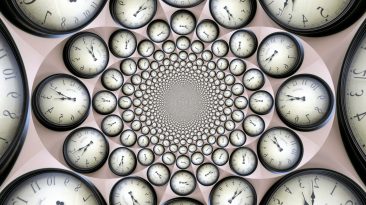Have you ever been curious about Medieval life? Would you travel back in time if you could?
Do you think you would enjoy it? How long would you last?
Hear ye, hear ye! The Middle Ages sucked!
After 200 years of peace and prosperity under ‘Pax Romana,’ the Roman Empire fell into crisis and decline. Thus began the Middle Ages, more commonly known as the Dark Ages; beginning towards the end of the 5th century and lasting until the start of the Renaissance in the 14th century.
This was a time when, unless you were a knight, nobleman, or the King himself, life was brutal and scary. Hygiene was poor, money was scarce, diseases were rampant, and punishment was cruel.
Beds were not soft, and toilets didn’t really exist, but hey, at least you had the church, and roughly 8 weeks of holidays and festivals spread throughout the year. The truth is, life back then was difficult, but people got through it.
They even managed to have a bit of fun while struggling to survive. Compare how they lived to your life today, and see if you’d ever be able to trade places.
Your typical day in a Medieval town starts at 4 am. The church bell tolls, announcing the first mass of the day. But unless you’re from a noble or royal house, you won’t be going to church this morning.
Instead, you’ll be preparing your goods for sale at the market, which opens at 6 am. And there you’ll stand for the next 9 hours, hoping you’ll make enough to buy a chicken for dinner, instead of the same old cabbage and beans.
Of course, not everyone in the Middle Ages was a peddler. The skill set in any given town could be quite diverse, with blacksmiths, tailors, masons, winemakers, and don’t forget the tax collector!
At around 3 in the afternoon, most retail businesses start shutting down for the day, and by 8 pm, the city gates are closed, and the night watchman takes up his post.
Dinner at your house might not be very special, but up at the castle, the King is having a feast! All you can eat, all you can drink, and not a single dull moment [jester]. The fun doesn’t stop with dinner. When the plates are cleared, the town’s elite take to the dance floor – even the knights.
Don’t feel left out. The commoners will get to have their fun at tomorrow’s festival. But for now, rest up, on that nice, straw bed of yours…
One of the good things about the Middle Ages: they did a lot of partying. It’s estimated that in total, roughly 8 weeks of any given year were taken off work for festivals or events.
While a lot of these festivals were tied to the church, the town also hosted tournaments, which the church did not approve of. That’s probably because tournaments made a spectacle of violence from jousting to swordplay to making prisoners duel to the death!
If you think that’s cruel, it doesn’t really get any better. Most serious crimes were settled by a trial by ordeal.
For example, if you were accused of a crime, you might be subjected to a trial by water. Bound hand and foot, you’d be tossed into a body of water.
If you sank, you’d be found innocent; because if you floated, it meant that you must’ve renounced baptism when entering the Devil’s service, and were therefore prevented from entering the water.
While the physics of buoyancy wasn’t exactly their strong suit, science did exist in the Middle Ages. For example, even in Medieval times, the well educated were well aware that the world was round.
This period also saw the inventions of many items we still use today, such as the mechanical clock and the printing press. Too bad they didn’t invent the toothbrush! In fact, if you were wealthy, it was fashionable to have rotting teeth, since it showed that you could afford sugar.
Obesity was also a sign of prosperity, since it showed that you could afford meat and other luxury foods. But if the nobles lived well, the peasants were in the best health.
Their well balanced diet of bread and beans, paired with full days of physical labor, kept them in great shape. And as for their teeth, well, they didn’t have toothpaste back then, so the common practice was to wash your mouth out with wine or vinegar after a meal.
Not very hygenic, but that’s not what the Middle Ages were about. You kept your hands and face clean to keep up appearances, but, aside from the rich, no one really had toilets or bathtubs like we do today.
This was a period of survival, and salvation. And whatever people did to get by usually worked… at least until the 14th century.
The last century of the Medieval period truly put the ‘Dark’ in Dark Ages, as it was marred by famine, conflict, and Plague. Also known as the Black Death, the Plague wiped out as much as 60% of Europe’s population in one of the most devastating pandemics in human history. And it took roughly 200 years for the world population to return to its previous level.
But over the next few centuries, Europe underwent a renaissance, a time when people pursued truth and accuracy through skepticism and scrutinizing empirical evidence. This period initiated a scientific revolution that continues to this day.
When you look back on it, the Middle Ages played an influential role in the development of modern society. But is it something we need to visit to see for ourselves? Or can we just trust the history books?
I’d be willing to bet most of you would rather keep your interactions with Medieval times to the restaurant chain, rather than having to rinse your mouth out with vinegar after a meal.
Subscribe to What-If on Youtube or follow the show on Facebook Watch.
Sources
- “Middle Ages”. 2019. HISTORY. Accessed July 4 2019.
- “Medieval Entertainment: Everything You Need To Know”. 2019. Youtube. Accessed July 4 2019.
- “Crime and Medieval Punishment” 2019. historyonthenet.com. Accessed July 4 2019.
- “How Clean Were Medieval People?“. 2019. Youtube. Accessed July 4 2019.
- “Did Medieval People Believe In Falling Off A Flat Earth?”. Wilde, Robert, 2019. Thoughtco. Accessed July 4 2019.
- “Ten Medieval Inventions That Changed The World – Medievalists.Net”. 2014. medievalists.net. Accessed July 4 2019.
- “Medieval Food & Drink: Life In A Medieval Village | Medieval Times Dinner & Tournament”. 2019. Medieval Times. Accessed July 4 2019.



























